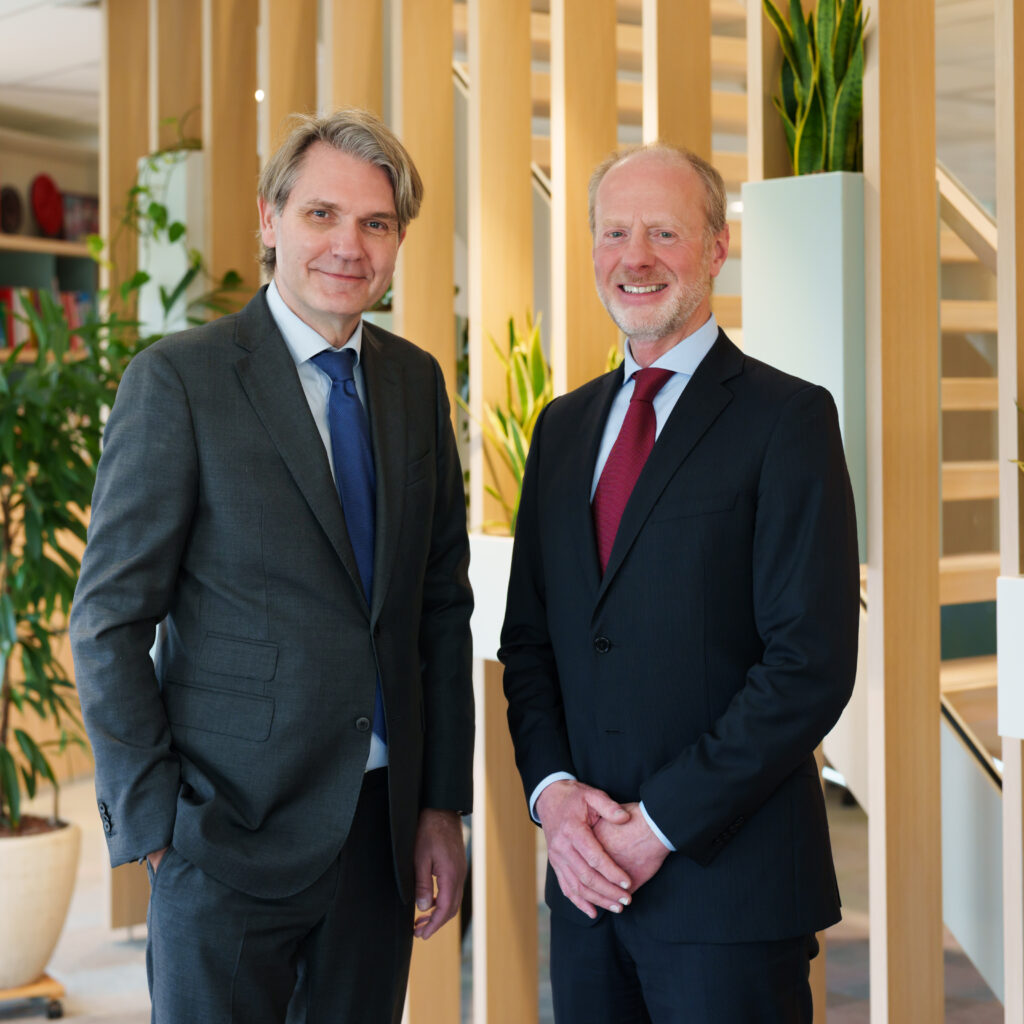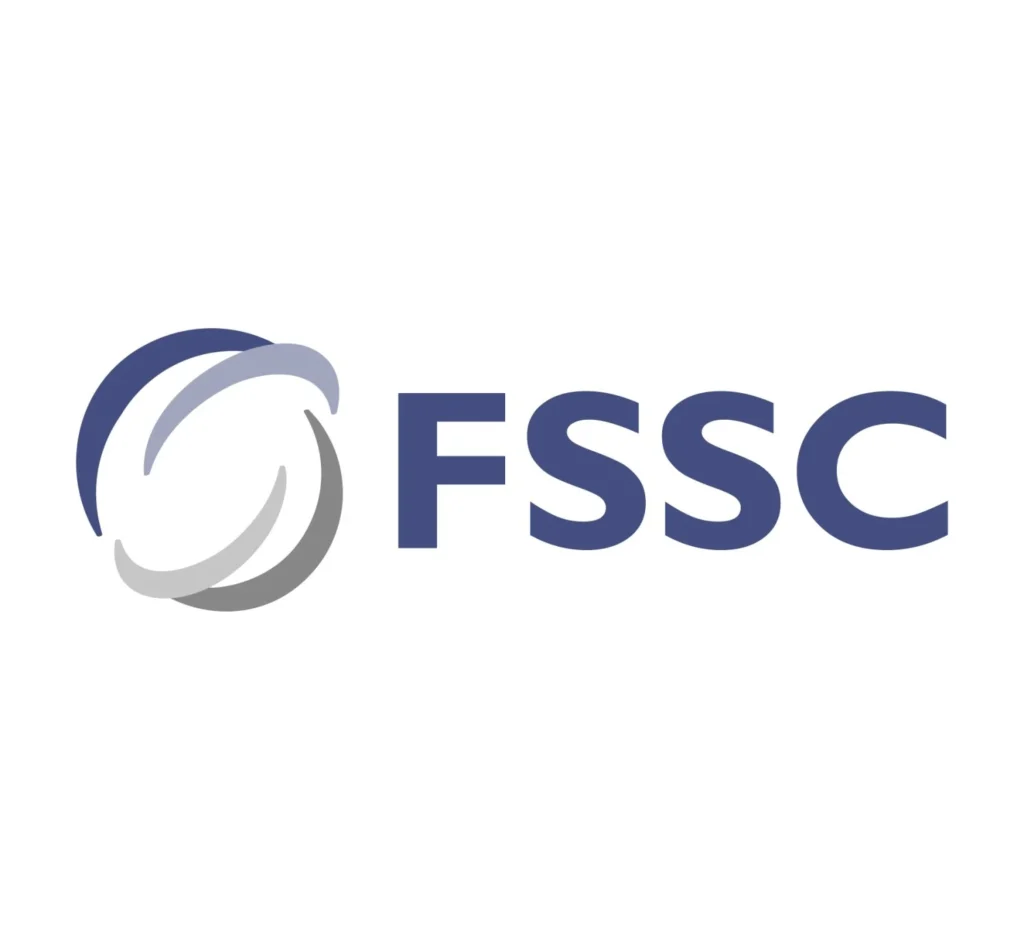Introduction by the board

Consumers not only want their food to be safe, but also want it to be produced in a fair and responsible way. The FSSC Foundation plays a key role in this by developing certification schemes that help companies embed food safety and social sustainability. Aldin Hilbrands, CEO of FSSC: ‘Certification is not a goal in itself, but a means to initiate structural improvements.’
‘Food safety is a basic requirement, but companies are increasingly being held accountable for their social responsibility. Our schemes help them turn that responsibility into concrete action,’ Hilbrands explains.
The FSSC 22000 certification scheme builds on the internationally applicable ISO 22000 standard, with additional requirements that support companies in guaranteeing and improving food safety. Hilbrands: ‘This scheme helps companies to organise food safety structurally and to focus not only on compliance with the standard, but also on continuous improvement, risk management and innovation.’
Social sustainability is a little more complicated, because for a long time there was no uniform, internationally accepted standard that could be applied everywhere. ‘Each region and sector has its own regulations and circumstances, which means that companies have to deal with different requirements,’ Hilbrands says. That is why FSSC introduced FSSC 24000 three years ago, a certification scheme that helps companies systematically address social sustainability. The scheme is based on the PAS 24000, a precursor to the official ISO standard for decent working conditions.
In addition to compliance with existing legislation, such as the Corporate Sustainability Reporting Directive (CSRD) and the Corporate Sustainability Due Diligence Directive (CSDDD), FSSC 24000 emphasises ethical business conduct. ‘Companies do not want to be associated with poor working conditions, and consumers demand transparency about how products are created,’ says Hilbrands. The certification scheme helps companies to structurally integrate ethical standards into their way of working. For instance, there are guidelines that contribute to a safe and fair working environment by, among other things, promoting gender equality, combating discrimination and preventing child labour.
FSSC 24000 thus directly contributes to the United Nations’ Sustainable Development Goals (SDGs), such as decent work and reducing inequality. In turn, the food safety scheme touches on goals such as fighting hunger and promoting overall good health and well-being.
‘As well as sustainable consumption and production,’ Hilbrands adds. A key focus within FSSC 22000 is the fight against food waste, an essential part of development goal 12, Responsible Consumption and Production. ‘Globally, 40 percent of food is wasted, which causes 10 percent of global greenhouse gas emissions,’ he continues. ‘By requiring companies to take this into account, we are reducing waste and contributing to a more sustainable food system.’
FSSC develops the schemes in consultation with stakeholders such as companies, certification bodies, accreditation organisations and scientists. ‘This is how we ensure that our certification schemes are in line with practice and based on the latest insights,’ says Hilbrands.
Companies that want to be certified according to the FSSC schemes must demonstrate that they meet the prescribed requirements. Certification bodies test this and grant the certification. To ensure that this process is fair and objective, certification bodies themselves are also assessed by independent accreditation organisations. ‘Accreditation ensures that certifications are not only reliable, but also consistently and independently applied,’ says Hilbrands. This provides companies– and consumers – with additional assurance that certifications meet the highest quality standards. It strengthens confidence in the system and helps companies to structurally integrate certification into their sustainability strategy.
This is already the global standard for food safety, while accreditation for social sustainability is now being introduced in more and more countries. ‘We are working closely with the Dutch Accreditation Council (RvA) to make this possible in the Netherlands,’ Hilbrands says. ‘The RvA plays a crucial role in ensuring the reliability and credibility of certification and accreditation domestically, and we see opportunities to strengthen this further.’
According to Hilbrands, the demand for certification in the domain of social sustainability will continue to increase. ‘Not only is international legislation becoming ever stricter, but societal pressure is also increasing. In addition, companies themselves want to demonstrate that they are doing business responsibly. Certification helps them to make their efforts measurable and credible.’
In addition, FSSC sees opportunities in digitalisation and the application of AI. ‘By analysing data from audits, we can identify trends and help companies improve in a more targeted way. This not only strengthens food safety and social sustainability, but also helps companies to make their strategy future-proof.’
FSSC is also becoming increasingly well-known outside the food sector. ‘We are expanding our certifications to the retail industry, such as clothing and leather goods. Social sustainability is becoming increasingly important in those sectors and fair working conditions play a major role,’ says Hilbrands.
‘These developments require trust between companies, certification bodies and accreditation organisations,’ Hilbrands continues. ‘By working together and learning from each other, we can not only improve our standards, but also jointly contribute to a more sustainable and better world.’
Want to learn more about FSSC’s vision on sustainability? Check out fssc.com/impact
Aldin Hilbrands is CEO of the FSSC Foundation. Since 2015, he has been responsible for the organization’s strategy, certification schemes and integrity programs. With more than 25 years of experience in the food industry, Hilbrands worked at Royal Ahold Delhaize, among others, where he focused on product safety, social responsibility and sustainability. He previously worked at SGS as an auditor and international sales manager.
Hilbrands is actively involved in international networks such as CGF, ISO and IAF and plays a key role in the development of standards for food safety and social sustainability.
